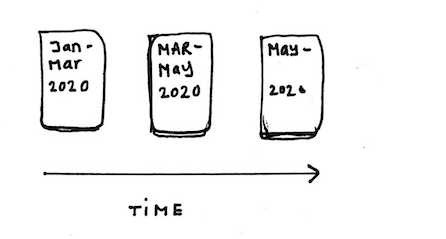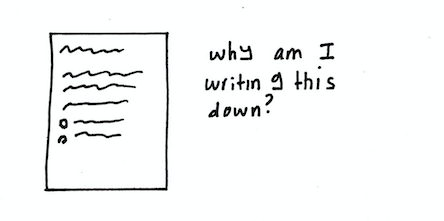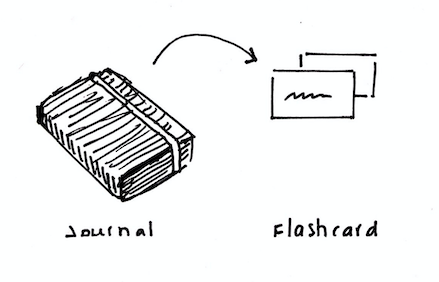How to take more useful paper notes
I love notebooks. I love those fancy expensive Moleskins and Leuchtturms with 80 grams per squared meter acid-free paper, although I have no idea whether that’s good or not.
There’s just something so soothing about physically writing down things on paper. There’s a certain slowness and deliberateness to writing on paper that digital can’t match.
In this blog post I want to go over some of the things I learned over the years taking paper notes. Use these tips to take more useful paper notes.

The only consistent structure in your paper notes is time. Your paper notes are append only: so treat them as such. Digital notes are infinitely flexible, paper notes are not. Don’t try to organize your paper notes like your digital notes.
The one thing you know for sure is that your notes go forward in time. Instead of fighting the limitations of your medium, work with it. Write the date span on your cover and put the current date on the page itself. I always like to start with a new page every day, but you don’t have to.

Ask yourself: “Why am I writing this down?” There are only so many reasons why you can write something down. Is it because you want to remember something for later? Is it because you just want to doodle? Is it because you want clarity in your thinking? Or is it just because you want to journal and write down how you feel?
To get more insights into why you journal, try going over some of your old notes and see what you wrote down. I realized that I take three kinds of notes (I wrote about this here already): I journal, I use checkboxes as a tool to beat procrastination, and I take reminder notes. This brings me to my next point.

You need to make your notes useful. Let’s be honest here, 99% of the notes you take won’t see the light of day ever again. Taking notes is nice, but inherently they don’t have a lot of value. Think to yourself, of all the notes you ever made what was the last time you reviewed any of them? That’s right. Probably never. Notes don’t become useful on their own, we have to make them useful.
The most actionable tip I have for you here is that if I make a note of something want to memorize, I turn it into an Anki flashcard. That’s the only routine that has worked for me so far. Taking this note out of my notebook and into my spaced repetition system ensures that it sees the light of day again.
This post was very much inspired by this post by Tom MacWright.





Comments